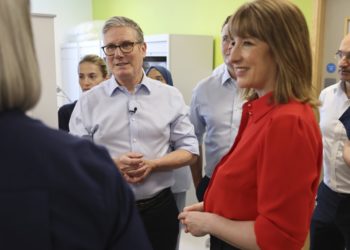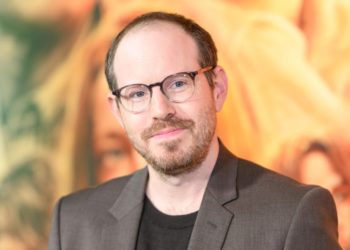Accused assassin Vance Boelter ordered held for trial, tells judge he looks forward to the facts coming out
A federal judge in Minnesota on Thursday ordered accused political assassin Vance Luther Boelter held until his trial on charges...
Hakeem Jeffries Breaks Record For Longest House Speech in Marathon Protest of Trump’s Bill
At 4:53 a.m. on Thursday, Hakeem Jeffries took his place at the lectern on the House floor, bound by no...
MAGA Rep Literally Cheers for Budget Taking Away Free School Lunch
Wisconsin Representative Derrick “Little Bitch” Van Orden stooped to a new low Thursday after passing Donald Trump’s behemoth budget bill....
Staffing cuts to national parks could pose safety concerns for summer visitors
Assateague Island, Maryland — The shoreline of Maryland’s Assateague Island is a familiar place for surfer Zack Tyndall. A former...
Ari Aster Talks “Very Frightening” Future Of AI As Some Treat The Tech “As A God”
No stranger to building a bone-chilling horror, Ari Aster is sharing one of his greatest fears for Hollywood. The Eddington...
New Social Media App ICEBlock Shows Nearby ICE Raids in Real Time
Have you checked out the Apple App Store lately? There’s a new number one on the leaderboard under the free...
An Oklahoma pediatrician is accused of staging her daughter’s accidental death in Florida
An Oklahoma pediatrician was accused of murder after authorities said she staged her daughter’s accidental death at a vacation rental...
Nobel laureate warns Iran is increasingly repressing its own citizens
One of Iran’s most prominent human rights advocates is warning that the Iranian government is using the aftermath of its...
Cop pulls gun on pint-sized perp caught brandishing knife in NYC subway station: video
A 13-year-old kid was caught brandishing a knife the size of his forearm, before a cop pulled his gun and...
Trump Administration Sending Hundreds of Marines to Florida to Help ICE
The U.S. military announced Thursday that 200 Marines will be deployed to Florida to assist Immigration and Customs Enforcement (ICE)...

















